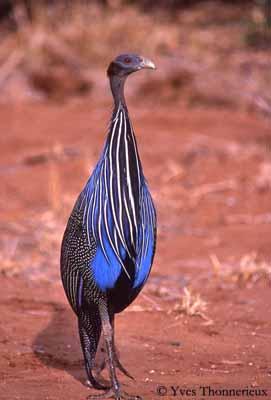
 1
1







 3
3




"We're all just walking each other home." -Ram Dass
"Be a lamp, or a lifeboat, or a ladder."-Rumi
"It's all one song!" -Neil Young
 2
2




 3
3




It's never too late to start! I retired to homestead on the slopes of Mauna Loa, an active volcano. I relate snippets of my endeavor on my blog : www.kaufarmer.blogspot.com




Judith Browning wrote:
We have friends who have guineas and they survive well in the woods, hatch out new broods and I think, still must have some survival instincts. Ours were bought from someone who raised a lot of poultry and several generations of hatched, penned up birds who maybe have lost some of their survival skills, I don't really know.
Alder Burns wrote:
For some reason they like to roost up on top of stuff, usually right under the exposed sky, and in that situation owls will snatch them one after another till they're gone. If they would just roost lower in a tree or among branches or something, that would help, but they really like the ridge of a building or a fence or something like that.
Su Ba wrote: They foraged for free handouts. It was not uncommon to see the flock a half mile away. But they always returned to their sleeping tree each night.




I kept them in a coop/pen arrangement for a couple of weeks before accidentally releasing them.





 2
2




List of Bryant RedHawk's Epic Soil Series Threads We love visitors, that's why we live in a secluded cabin deep in the woods. "Buzzard's Roost (Asnikiye Heca) Farm." Promoting permaculture to save our planet.








Mike Arr wrote:Thank you Bryant.
I originally enclosed the entire structure with chicken wire because I thought it would only be a temporary quarters for the first batch while they acclimated to the property. Now that it is becoming permanent, I reinforced the pen with a layer of 2" welded wire all the way around, so every side now has 2 layers of chicken wire under one layer of welded wire, screwed tight to the boards. I also added a sturdy door and a corrugated polycarbonate roof. I still have one point of weakness, one side of the pen does not have 18" of wire at ground level - thanks for the reminder - I'll fix that today and then hopefully the structure will stand up to predators.
One interesting thing I did with the first batch was to set up a cheap, solar powered flood light that charged during the day and lit up the pen entrance (and waterer/feeder) in early evening. Along with evening feeding, this seemed to encourage them to go into the pen at night. That configuration isn't working anymore since there is a roof, but I am trying to accomplish the same thing with a solar powered flagpole light.
They have now been in the pen 7 full days, eating mostly unappetizing Purina protein mush, scratch feed and a vegetable scraps. I feel bad - it's been gray and raining for a couple of days and that is expected to continue for several more days. It has to be stressing them out. They didn't drop any eggs yesterday. I'm very tempted to let them out. I'll get them some meal worms as Bryant suggests.





 1
1








 1
1




 1
1





























List of Bryant RedHawk's Epic Soil Series Threads We love visitors, that's why we live in a secluded cabin deep in the woods. "Buzzard's Roost (Asnikiye Heca) Farm." Promoting permaculture to save our planet.

|
LOOK! OVER THERE! (yoink) your tiny ad is now my tiny ad.
Webinar: SKIP Presentation by Paul Wheaton 2022
https://permies.com/wiki/198360/Webinar-SKIP-Presentation-Paul-Wheaton
|



